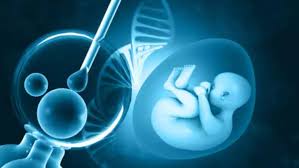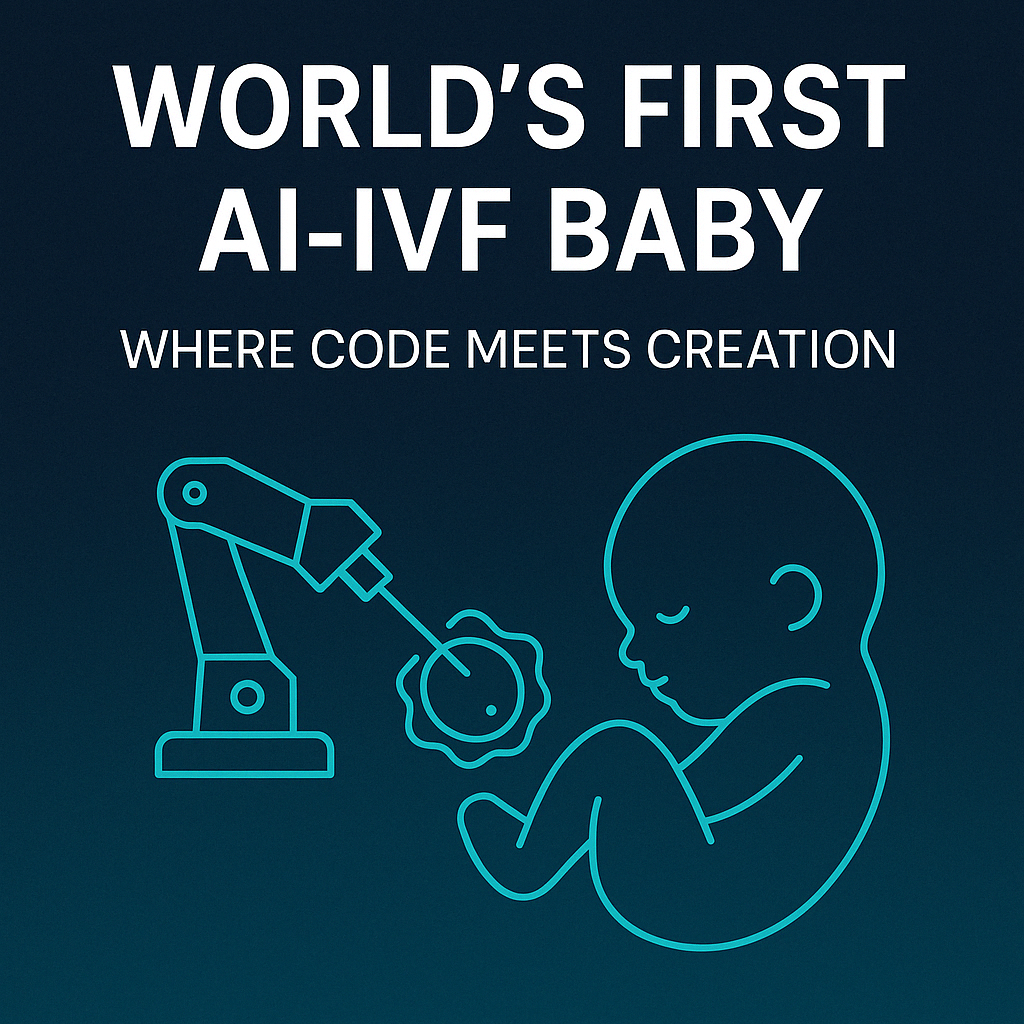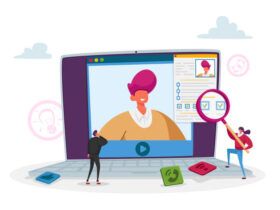World’s First AI-IVF Baby: In a modest clinic in Guadalajara, Mexico, something extraordinary happened. A 40-year-old woman—after years of heartbreak and failed IVF attempts—welcomed a healthy baby boy into the world. What made it historic wasn’t just the birth. It was how it happened.
This child is the first ever born through a process guided entirely by artificial intelligence and robotic precision. In a world-first, AI didn’t just assist doctors—it took the lead, selecting sperm, navigating a robotic arm, and performing the delicate microinjection that begins life.
At indTech.in, we’ve tracked AI transforming industries. Now, it’s transforming lives.

Rethinking Reproduction: Why AI Matters
According to IndiaToday For over 40 years, IVF has offered a path to parenthood for people facing infertility. Yet even today, it’s a manual, expensive, and emotionally taxing process. Success often hinges on the experience of embryologists who assess and inject sperm cells by hand.
But AI-assisted IVF changes the rules.
Here’s what the system did:
- Machine learning algorithms scanned sperm cells to select the most viable candidate.
- A robotic microneedle, guided by computer vision, performed the injection into the egg.
- The entire process was automated, reducing dependence on human intuition.
This isn’t about replacing doctors. It’s about replacing guesswork with data-informed precision.

Why This Birth Is a Technological Turning Point
1. Consistency Over Chance
Manual IVF can vary based on experience and fatigue. AI, trained on tens of thousands of samples, doesn’t blink. It applies consistent logic—every time.
2. Lower Costs, Wider Access
Skilled embryologists are rare, and clinics are expensive. AI-powered systems could one day democratize fertility care, bringing high-quality IVF to regions currently left behind.
3. Faster Innovation Loops
AI learns with every attempt. As it processes more cases, the system refines itself—accelerating improvements in reproductive science in a way traditional methods simply can’t.
The Future of Fertility Isn’t Just Clinical—It’s Ethical
The birth of this child opens a floodgate of questions.
- Who owns the data AI is trained on?
- How do we ensure fairness in algorithmic decision-making in healthcare?
- Can empathy be engineered into automated systems?
For all the excitement, this moment demands responsible innovation. Because when you intersect life and code, every decision echoes beyond the lab.
Yet, one thing is clear: this isn’t a gimmick or a gimmicky headline. This is proof of concept for a new kind of care—where biology and technology don’t compete, they collaborate.
From Prototype to Paradigm Shift
The Barcelona-based fertility startup behind the technology, Overture Life, says their AI-assisted system is designed to augment, not eliminate the work of fertility specialists. Think of it as a “co-pilot”—a consistent, tireless digital partner in an emotionally complex journey.
The implications stretch far beyond this single birth. As AI capabilities evolve, we may soon see:
- AI-driven embryo grading
- Personalized IVF protocols
- Predictive models for success rates
- Autonomous fertility clinics in rural areas
It’s not far-fetched. It’s already happening.
Final Thoughts: A Birth That Changes Everything
This child isn’t just the first of their kind. They represent a quiet revolution—one where life begins at the intersection of algorithms, robotics, and human hope.
And if we get it right—ethically, responsibly, humanely—this could be the beginning of a world where infertility is no longer a closed door, but a solvable equation.
Here at indTech.in, we believe in telling stories not just about how technology works, but why it matters. And this one?
It matters deeply.
Comment your thoughts below…
[Read More |How to Create the Perfect Portfolio ]
[Read More | AI Quantum and Ethical Tech: The Biggest Tech Trends of 2025 ]







